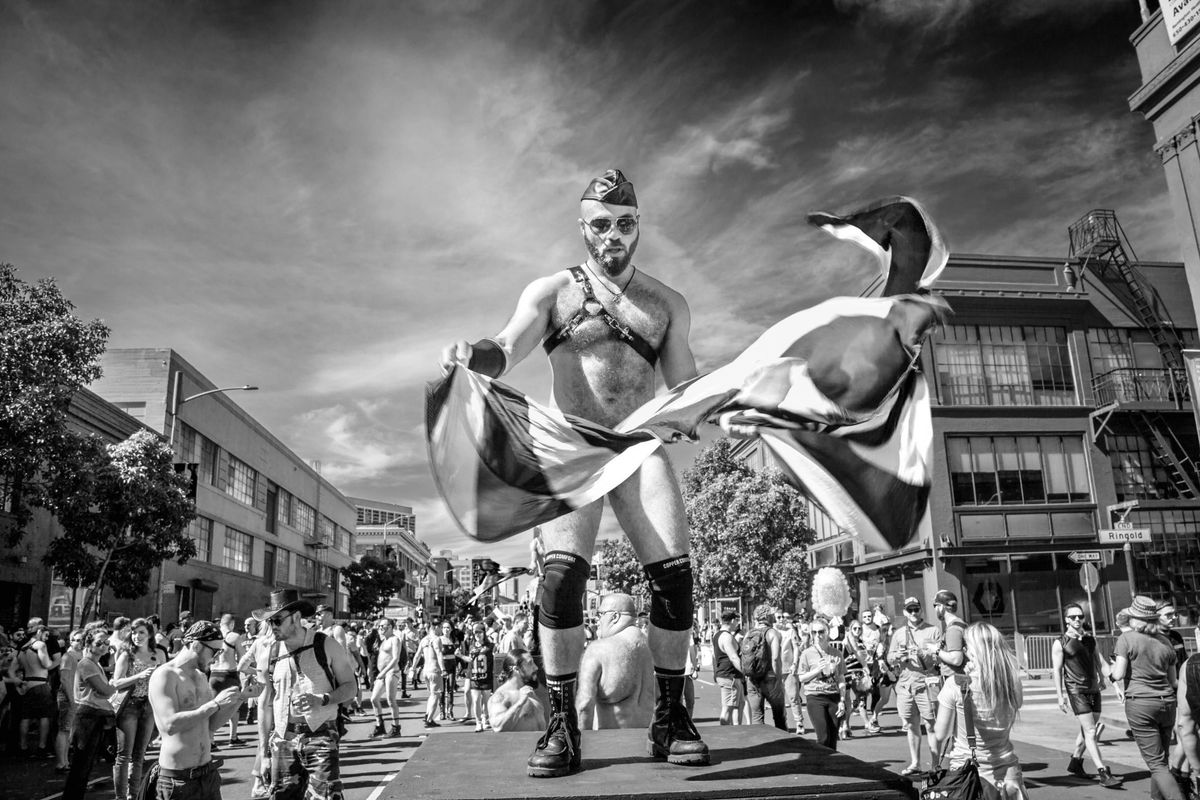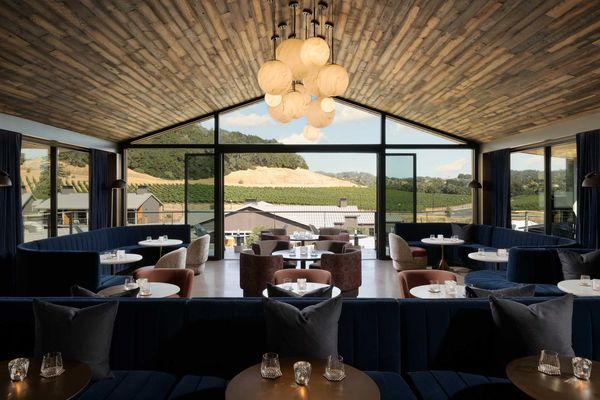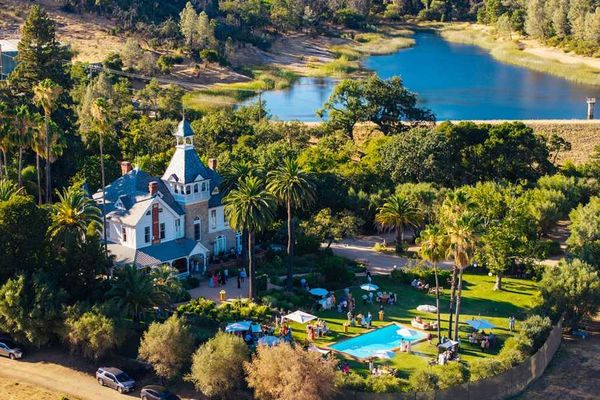As San Francisco-based writer K.M. Soehnlein so aptly said in his piece about the closing of the legendary drag venue The Stud: "Buildings are not community. Brick-and-mortar is not the same as spirit." At the same time, certain locations seem to invite a spirit of personal expression and communal joy to flourish.
San Francisco's South of Market neighborhood, known to us all as SoMa, is one such place. In a new piece of interactive theater, Soehnlein—who served as lead writer and also lives in the neighborhood—and creator/director Seth Eisen set out to bring SF's queer history to life with a virtual experience set directly in the 'hood, which is famous for its multivalent climate of art, kink, and inclusivity.
In Out of Site: SOMA, "we're taking an intersectional look at what I would broadly call resistance," said Soehnlein, remarking on the extraordinarily rich history of activism that has taken place in SoMa—from advocacy for the unhoused by early 20th century trans pioneer Jack Garland, to labor organizing in the 1930s that allied the struggles of black and queer merchant marines, to the AIDS activism elevated by the founders of Folsom Street Fair and the famed lesbian bar the Bay Brick Inn.
Eisen and Soehnlein were gearing up to launch the second iteration of this performance—they collaborated on the first version last year—when COVID-19 changed their plans. So how do you lead people on a site-specific walkthrough of an epicenter of queer culture when the center itself has been removed? You do what the indomitable spirit of queerness demands: You get creative and use what's available, in this case, Zoom, WireCast, and Google Earth.
"I'm very visual, I storyboard, I get into really detailed things," said Eisen, noting that translating the piece into an online format has not been easy. "Last year we staged a scene in an old sex club. I was inspired by the actual space, by a throne there for example…now each actor will be in their own space. That puts a new spin on theatrical blocking. We're taking techniques from film, theater, and webinars to play with the fourth wall in a new way."
Despite the challenges, feedback on the work in progress has revealed some collateral benefits to the shift to personal screens. Lauren Hewitt, a former owner of the Bay Brick Inn, was among those who saw the preview and remarked on the heightened sense of intimacy and the deeper connection with the script that the new format allows. And while the online version poses potential stumbling blocks such as the strength of the respective actors' internet connections, doing street theater also has its peril.
"I won't miss an Uber pulling up and dropping off passengers right in the middle of actors doing a scene," said Soehnlein. Eisen also noted the difficulty of negotiating foot traffic on city streets and fending off the occasional aggressive interloper during last year's iteration of Out of Site: SOMA, as well as during the first Out of Site performance, which took place in North Beach in 2018. The in-person shows also played with the fourth wall with intentional interactions between the actors and audience, something that will be accomplished in new and different ways during the upcoming performances on Zoom.
Last year, an actor playing the late Alan Selby, beloved leather daddy and AIDS activist, interacted with an audience member "shopping" in Selby's store, Mr. S Leather.
"It's always a wild card," said Eisen, recalling the scene. "You don't know how people will react, who should be chosen to participate…[this time] we'll ask people to dress up, pick participants at the beginning of the show, prepare them so they're ready when Mr. S asks them if daddy can give them anything."
The online pre-show will also include cocktail-making demonstrations and the invitation to dress for and possibly participate in other scenes, such as one that takes place in Labyris Auto Repair, the first women-owned and operated automobile maintenance shop in San Francisco. From 1977 to 1988, Labyris was co-owned by Nancy Rupprecht, who Eisen sought out and interviewed after seeing a photo of her that taken by Janet Delaney and displayed at the De Young Museum.
"We created a scene with a fictionalized version of Nancy training a young lesbian in auto repair," said Soehnlein. "A customer comes in, sent by her husband to find her car, and it becomes a sort of sit-com where the customer wants to talk to the owner, who of course couldn't be a woman."
The long list of pivotal members of the SoMa community interviewed by Eisen and Soehnlein also includes Kathleen Connell, who founded the Folsom Street Fair with Michael Valerio in 1984 as a way to raise funds to fight redevelopment. Connell and Valerio were housing rights activists protecting vulnerable people against eviction, defending migrant worker rights, and fundraising to address AIDS. The fair became the fourth largest fundraising event in the country—30,000 people attended in the first year.
"Leather was kind of an aside initially," said Eisen, noting that during the online show, community members will take a moment to envision a future for SoMa that honors the radical possibilities reflected in its remarkable history. "The heart of this piece is how we've come together as a community to help each other in times of need and to solve social problems."
Out of Site: SOMA will eventually take place in person again, but from June 19th to 28th, you can tune in from the comfort of your own home. Following the ethos of The Stud, noted on the hand-painted sign recently removed from above its entrance, everyone is welcome. So log in, add your own flavor of the rainbow, and celebrate what's possible when we work together to make the world we want to live in.
You are also welcome and encouraged to support Eisen's company, Eye-Zen Productions, by making a donation to sustain live (and live-streaming) performance art honoring the history of resistance and the multivalent and multiplicitous humanity we share.
// 7-9pm, June 19-21 and June 26-28; eyezen.org/out-of-site; tickets ($25-$500) may be purchased at Eventbrite.





















